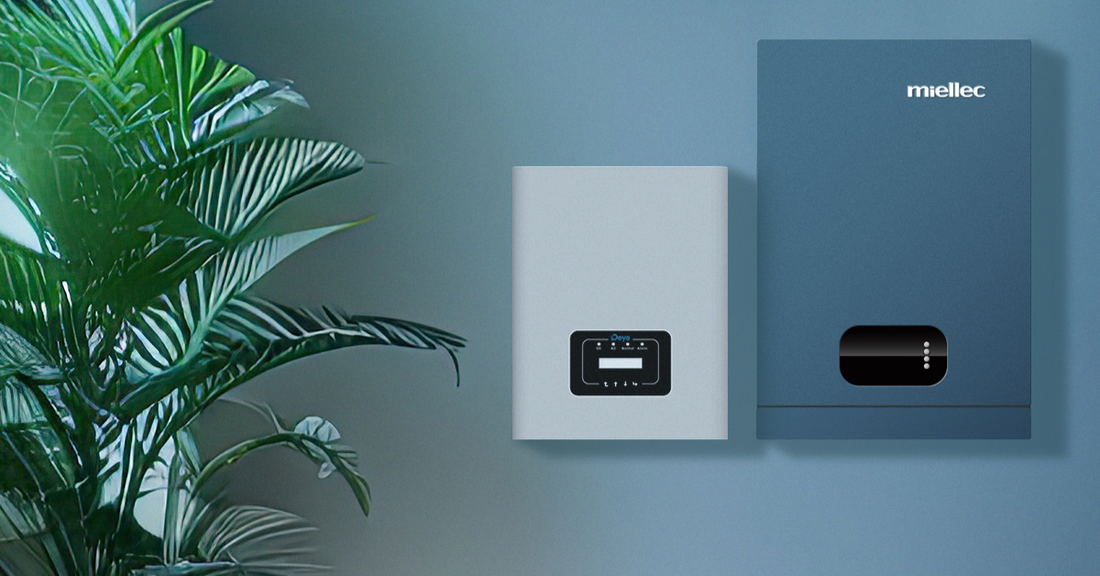Energy storage – the key to energy independence
Energy storage is becoming increasingly popular in households and industry. Its task is to store energy, which allows it to be used at a later time. Thanks to them, it is possible to increase independence from energy suppliers and protect against sudden spikes in energy prices. Additionally, integration with a photovoltaic installation allows for better management of surplus electricity and improves the profitability of the investment.
How does energy storage work?
The energy storage operates on the principle of collecting surplus electricity, which can be used during times of greater demand or in the event of a power grid failure. The electricity storage can be managed intelligently, adapting it to the energy consumption profile of the building, which additionally increases savings and optimizes energy consumption. The use of the energy storage improves the stability of the power supply and increases the energy security of the household.
Advantages of energy storage
-
Increased self-consumption of energy – Storing surplus electricity allows you to use the produced energy for your own needs instead of feeding it into the power grid.
-
Energy security – in the event of a grid failure, an energy storage facility can ensure continuity of supply, which increases the energy security of the household.
-
Financial savings – by storing surplus energy, you can reduce the costs of purchasing electricity from the power grid, which translates into financial savings.
-
Emergency power function – home energy storage devices can act as emergency power supplies, ensuring power supply in the event of power outages.
-
Increased independence – thanks to energy storage, households can achieve greater independence and become independent from energy suppliers.
-
Investment profitability – in combination with a photovoltaic installation, the energy storage allows for better use of renewable energy sources and optimization of operating costs.
-
Cooperation with heat pumps – energy storage devices can support the operation of heat pumps, which additionally increases the energy efficiency of the building and ensures greater energy independence.
-
Increased energy security – energy storage allows for independence from energy supply companies and reduces the impact of energy price fluctuations on the household.
Energy Storage Challenges
-
Energy storage cost – the price of an energy storage depends on its capacity and technology. The investment cost is still higher than in the case of a photovoltaic installation alone, but in the long run it may pay off.
-
Energy storage life – Lithium-ion batteries have a long lifespan, but their gradual degradation can affect performance later in use.
-
Impact of temperature on efficiency – low temperatures can slightly reduce the efficiency of an energy storage device, but modern systems are equipped with solutions to minimize this impact.
-
Appropriate selection of storage capacity – in order to maximize the potential of an energy storage facility, its usable capacity should be selected to the actual needs of the household and the amount of generated energy surpluses.
-
The need for integration with a hybrid inverter – for full compatibility of the energy storage with the photovoltaic system, it is often necessary to use a hybrid inverter, which additionally optimizes the use of the stored energy.
 Also read: How energy storage works
Also read: How energy storage works
Is energy storage profitable?
The decision to install an energy storage should be preceded by an analysis of the costs and savings resulting from its use. The price of the energy storage and the cost of its installation can be partially covered by subsidy programs such as "Mój Prąd". Thanks to the "Mój Prąd" program, you can obtain financial support that will reduce the cost of the investment, making it more affordable for households.
Photovoltaic installation and energy storage
Combining a photovoltaic installation with an energy storage is a solution that increases the energy efficiency of a building. The photovoltaic installation provides electricity for everyday use, and surplus electricity can be stored for later use. This allows users to make the most of renewable energy sources, reducing their electricity bills and increasing energy independence.
Energy storage installation – what to pay attention to?
When installing an energy storage device, it is important to properly match its capacity to the actual energy demand in the household. The compatibility of the system with a hybrid inverter should also be taken into account, which allows for optimal management of the stored energy. Some energy storage devices also offer the possibility of integration with an intelligent energy management system, which additionally increases the efficiency of the entire solution. The cost of an energy storage device depends on many factors, including the capacity of the storage device and the technology used in lithium-ion batteries. The appropriate selection of the energy storage device allows for the maximum use of the stored energy for your own needs, while increasing the energy security of the household.



 Also check:
Also check: 

